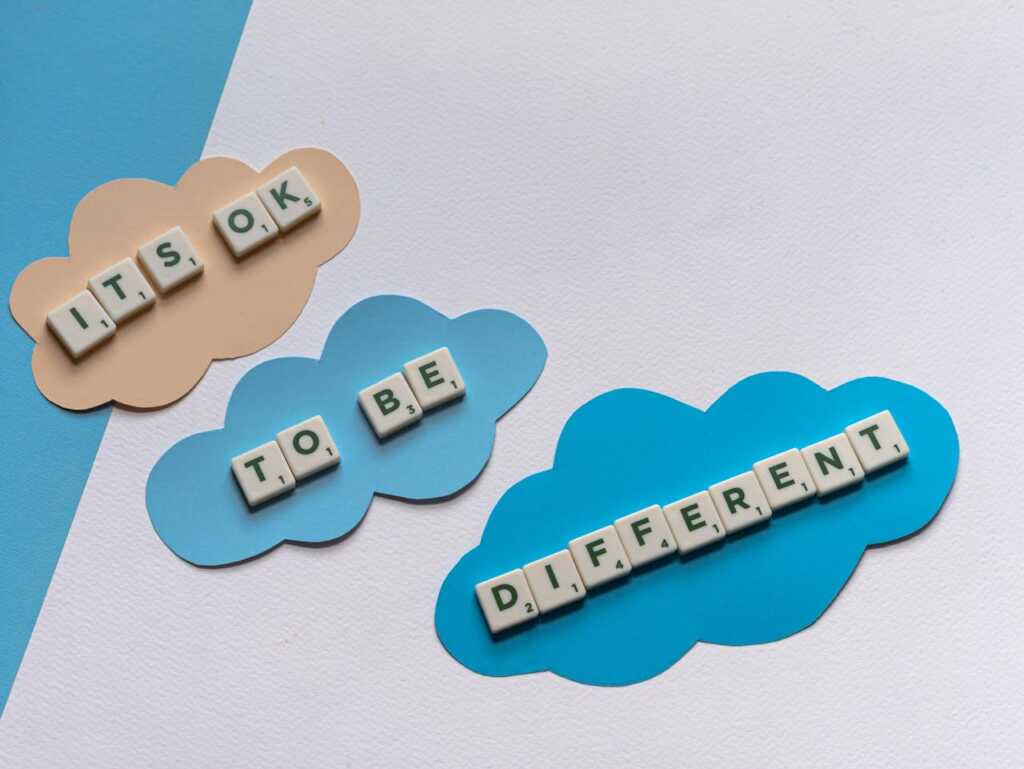Autism, a spectrum of neurodevelopmental conditions, encompasses a wide range of experiences and abilities. In a world that often focuses on the challenges associated with autism, it’s crucial to remember the extraordinary strengths and unique perspectives that individuals on the spectrum bring to our communities.
In this blog post, we’ll explore powerful affirmations and positive frameworks that celebrate the diverse talents of autistic individuals. By shifting our focus towards empowering narratives, we can better support and nurture the incredible potential within the autism community. Join us as we uncover how to recognize, appreciate, and foster the inherent strengths found in those with autism.

Schooling Options
Exploring educational opportunities is pivotal in nurturing the diverse potentials of autistic individuals. An environment that recognizes and caters to the unique learning needs of students on the spectrum can significantly impact their personal and academic growth. Mainstream schools, special education programs, and homeschooling for a child with autism are all viable options. Each setting offers different benefits and challenges, but what’s important is finding the best fit for an individual student. This process may require open communication with teachers and exploring various accommodations and modifications to create an inclusive learning environment.
The Power of Positive Affirmations
Positive affirmations hold a significant place in empowering individuals with autism. These affirmations can reinforce self-esteem, encourage resilience, and promote a sense of belonging. For many on the spectrum, daily affirmations serve not only as reminders of their inherent worth but also as tools to counter negative perceptions and societal stereotypes. By incorporating phrases like “I am capable and understand my unique value” or “I accept myself and my autism,” individuals can foster a more positive self-image. This practice of self-affirmation is a step towards acknowledging one’s abilities and contributions, thereby creating a foundation for personal growth and self-acceptance.
Embracing Neurodiversity
Neurodiversity is a concept that acknowledges and appreciates the diverse range of human brains and minds. It’s a perspective that regards individuals with autism not as defective or in need of repair, but as having a unique set of cognitive attributes that contribute to the richness of human variability.
By adopting a neurodiversity framework, society, educators, and family members can shift towards more inclusive practices that recognize the strengths and potential of autistic individuals. This approach encourages environments where differences are not just tolerated, but celebrated, thus providing opportunities for individuals on the spectrum to thrive in their distinct ways. Through understanding and valuing neurodiversity, we pave the way for a more accepting and supportive world that honors the whole spectrum of human neurotypes.
Nurturing Social Skills and Emotional Well-being
For individuals with autism, developing social skills and maintaining emotional well-being are crucial aspects of personal growth. Nurturing these skills involves providing supportive environments where they can learn and practice social interactions in a non-judgmental setting. Social skills groups, tailored therapy sessions, and inclusive community activities can serve as valuable platforms for this learning process.
Equally important is the role of families and educators in reinforcing positive social experiences and emotional coping strategies. By prioritizing emotional well-being, and understanding and addressing the unique challenges faced by autistic individuals, we can help foster a sense of security and confidence.
Recognizing and validating their emotions, teaching flexible thinking, and encouraging empathetic interactions contribute significantly to their emotional resilience and social adeptness. This holistic approach not only supports the emotional and social development of individuals with autism but also enriches their quality of life.
Enhancing Self-Confidence and Self-Esteem
Building self-confidence and self-esteem is essential in empowering individuals with autism to lead fulfilling lives. Confidence stems from a core belief in one’s abilities and values, which can be nurtured through positive reinforcement, celebration of achievements, and constructive feedback. For those on the autism spectrum, personalized support that acknowledges their unique strengths and challenges plays a pivotal role in this process.
Initiatives such as setting achievable goals, engaging in activities that showcase their talents, and providing opportunities for autonomy can significantly enhance their self-esteem. Additionally, fostering a supportive community that appreciates their contributions encourages a positive self-image. By creating an environment where individuals with autism feel understood and valued, we lay the groundwork for them to develop a strong sense of self-worth and the confidence to pursue their passions and interests.
Tools for Coping with Sensory Sensitivities
Sensory sensitivities are a common aspect of the autism experience, with many individuals finding certain sounds, lights, or textures overwhelming. Addressing these sensitivities is crucial for enhancing the daily life and overall well-being of autistic individuals. Through the use of specialized tools and strategies, it’s possible to create environments that mitigate sensory overload and encourage comfort and focus.
Noise-canceling headphones can provide a sanctuary from distressing auditory stimuli, while tactile toys and fidget devices offer an outlet for sensory processing and stress relief. Additionally, the use of dimmable lights and sunglasses can help manage visual sensitivities, creating a more soothing visual environment. By recognizing and adapting to the unique sensory needs of individuals with autism, families, and educators can empower them to engage more fully with their surroundings and reduce the stress associated with sensory sensitivities.

Supportive Environments
Creating supportive environments is paramount for individuals with autism to flourish, both personally and academically. These environments are characterized by understanding, patience, and the flexibility to adapt to each individual’s needs and preferences. Whether it’s at home, school, or in the wider community, a supportive setting can significantly enhance the ability of autistic individuals to engage with the world around them.
These environments should include access to resources and activities that cater to diverse interests and learning styles, promoting a sense of independence and self-exploration. Equally important is fostering a community that champions inclusivity and acceptance, where differences are not merely accommodated but celebrated. This can be achieved through awareness campaigns, peer-support groups, and inclusive policies that ensure everyone has the opportunity to contribute meaningfully and feel valued.
By committing to the creation and maintenance of supportive environments, we empower individuals with autism to achieve their full potential, highlighting the importance of community and connection in nurturing a more inclusive society.
In conclusion, by embracing the strengths and potential of individuals with autism, we can create a world that values neurodiversity and celebrates the unique contributions of every individual. Whether through affirmations, supportive environments, or opportunities for personal growth, each step towards acceptance and empowerment is crucial in nurturing the diverse talents and perspectives within the autism community. Let’s continue to foster an inclusive society where everyone has the chance to thrive and embrace their unique strengths.





